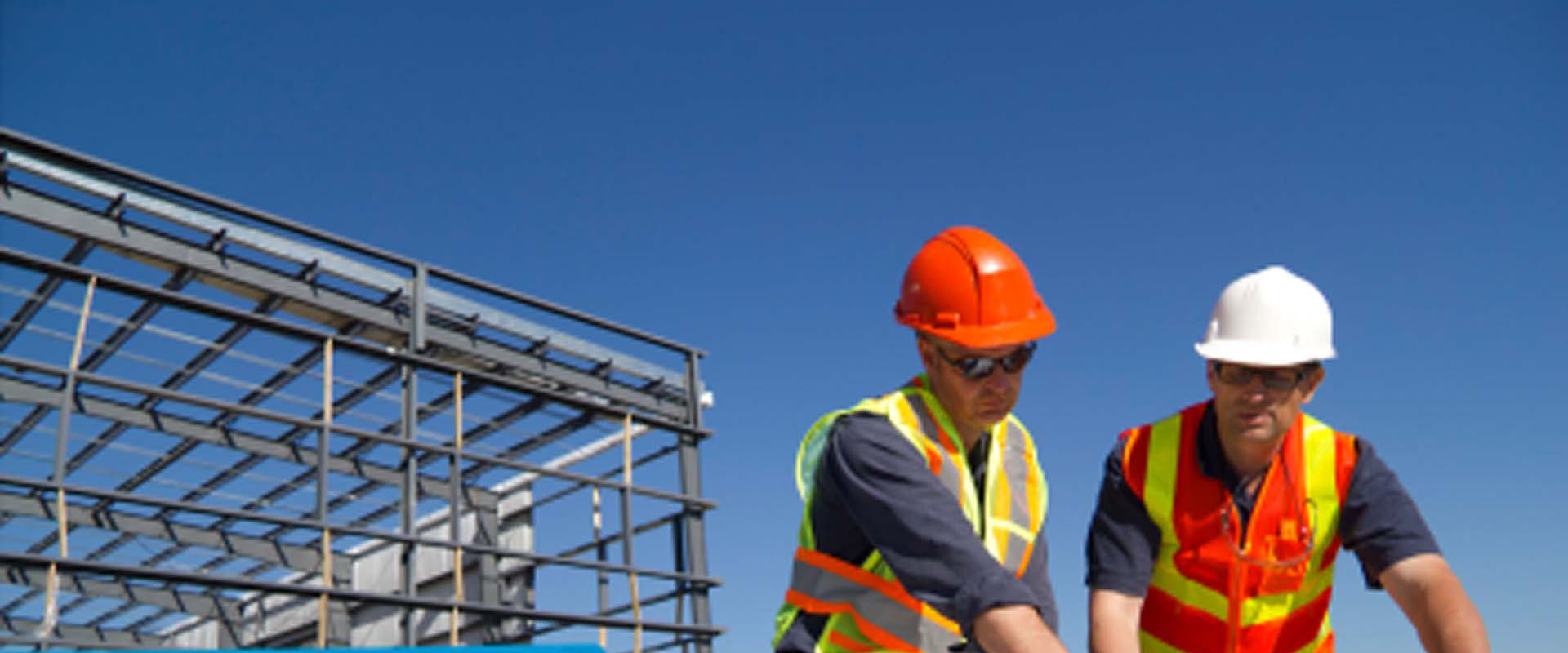Court of Appeal Highlights the Importance of a Public Agency Complying With its Own Bid Requirements

January 2016
Number 2
The Third District Court of Appeal's recent decision in DeSilva Gates Construction, L.P. v. Department of Transportation (2015) 242 Cal.App.4th 1409 (DeSilva), confirms the importance of ensuring that bidders on public construction projects comply with the express requirements of an invitation for bids. In DeSilva, the Court of Appeal held that a public entity incorrectly determined a contractor's bid to be nonresponsive where the contractor had complied with all requirements in the invitation to bid and under applicable statute, despite the contractor adding a new subcontractor after submitting its original bid. The DeSilva court also reaffirmed the longstanding rule that a public entity cannot waive a material error in a bid.
In DeSilva, the California Department of Transportation (Caltrans) issued an invitation for bids on a public construction project. The invitation required each bidder to list, in its bid proposal, all subcontractors performing work in an amount in excess of one-half of one percent of the total bid or $10,000, whichever was greater. Each bidder was also required to provide, in its bid or within twenty-four hours thereafter, the bid items for each subcontractor and the corresponding percentages of those items being subcontracted. These requirements mirrored those in Public Contract Code section 4100, et seq. Caltrans then issued an addendum to the invitation which, in part, instructed bidders that the items declared in the addendum were an "essential part of the contract" and that bids should be submitted "with the understanding and full consideration of [the] addendum." Caltrans received and opened nine bids for the project. The lowest bid was deemed nonresponsive and was not at issue in the appeal. The second lowest bid was submitted by DeSilva Gates Construction LP (DeSilva), and the third lowest bid submitted by Papich Construction Company, Inc. (Papich).
DeSilva's bid included the names and appropriate descriptions of work to be performed by all subcontractors slated to perform work exceeding one-half of one percent of the bid amount. After submitting its bid, and within twenty-four hours of bid opening, DeSilva sent Caltrans a second subcontractor list, which provided additional information regarding its subcontractors and also listed an entirely new subcontractor. On the second subcontractor list, the new subcontractor was listed to perform less than one-half of one percent of the work. The next lowest bidder, Papich, challenged the award of the contract to DeSilva. Caltrans then rejected DeSilva's bid on the grounds that listing the entirely new subcontractor on its second subcontractor list was improper and rendered DeSilva's bid nonresponsive.
The Court of Appeal disagreed with Caltrans' determination and held that DeSilva's bid was not nonresponsive and that Caltrans' rejection of the bid was improper. Even though DeSilva's second subcontractor list was not identical to the initial subcontractor list, and listed an entirely new subcontractor, DeSilva's bid did not run afoul of the invitation for bids or any applicable statute. The only requirement was that DeSilva, in its initial bid, list all subcontractors performing in excess of one-half of one percent of the work. Because the new subcontractor was not slated to perform more than one-half of one percent of the work, DeSilva had no legal requirement to list the new subcontractor in its original bid. As stated by the Court, the listing of the new subcontractor in the second subcontractor list was "accurate, albeit unnecessary." The Court also noted that DeSilva's listing of the new subcontractor did not appear deceptive or indicate any attempt to gain an unfair advantage, and showed no attempt by DeSilva to flout the requirements in the bid invitation. Because DeSilva's bid met the express requirements of the invitation, did not conflict with any applicable statute, and was not otherwise improper, the bid was responsive and should not have been rejected. The Court also rejected arguments that its ruling would allow for improper bid shopping after the initial bid is submitted.
Papich's bid, on the other hand, failed to acknowledge or accept the addendum to the invitation to bids. Although Caltrans initially determined Papich's bid nonresponsive for this reason, Caltrans allowed Papich to provide documentary evidence showing that Papich considered and agreed to be bound to the addendum. After receiving this evidence from Papich, Caltrans waived the mistake and determined Papich's bid to be responsive.
The Court of Appeal again disagreed, holding that Caltrans could not waive the error in Papich's bid. Under existing case law, a bid error may only be waived if the error or variance in the bid is immaterial in that it does not affect the amount of the bid or give the bidder an advantage or benefit not allowed other bidders, i.e., the error is not material. A material error, on the other hand, cannot be waived. Caltrans' invitation for bids specifically stated that "a bidder's failure to acknowledge a material amendment to the contract renders its bid nonresponsive." The Court therefore concluded that Papich's failure to acknowledge the addendum in its bid was a material error that Caltrans could not waive, and Papich's bid should have been rejected as nonresponsive.
The holding in this case boils down to whether or not the contractors' bids complied with the specific requirements for the invitation for bids. To that end, DeSilva serves as a reminder that public entities, despite their broad discretion in determining responsiveness of bids, must properly and equally enforce the express requirements of a bid request and the numerous California statutes applying thereto. This also emphasizes the need to review bid instructions closely prior to bidding, as the public agency will be afforded limited opportunities to deviate from those instructions once bids are received.
If you have any questions regarding public bidding, or have any planned or anticipated construction projects and would like to discuss the bidding process, please contact one of our nine offices located statewide. You can also visit our website, follow us on Facebook or Twitter, or download our Client News Brief App.
Number 2
The Third District Court of Appeal's recent decision in DeSilva Gates Construction, L.P. v. Department of Transportation (2015) 242 Cal.App.4th 1409 (DeSilva), confirms the importance of ensuring that bidders on public construction projects comply with the express requirements of an invitation for bids. In DeSilva, the Court of Appeal held that a public entity incorrectly determined a contractor's bid to be nonresponsive where the contractor had complied with all requirements in the invitation to bid and under applicable statute, despite the contractor adding a new subcontractor after submitting its original bid. The DeSilva court also reaffirmed the longstanding rule that a public entity cannot waive a material error in a bid.
In DeSilva, the California Department of Transportation (Caltrans) issued an invitation for bids on a public construction project. The invitation required each bidder to list, in its bid proposal, all subcontractors performing work in an amount in excess of one-half of one percent of the total bid or $10,000, whichever was greater. Each bidder was also required to provide, in its bid or within twenty-four hours thereafter, the bid items for each subcontractor and the corresponding percentages of those items being subcontracted. These requirements mirrored those in Public Contract Code section 4100, et seq. Caltrans then issued an addendum to the invitation which, in part, instructed bidders that the items declared in the addendum were an "essential part of the contract" and that bids should be submitted "with the understanding and full consideration of [the] addendum." Caltrans received and opened nine bids for the project. The lowest bid was deemed nonresponsive and was not at issue in the appeal. The second lowest bid was submitted by DeSilva Gates Construction LP (DeSilva), and the third lowest bid submitted by Papich Construction Company, Inc. (Papich).
DeSilva's bid included the names and appropriate descriptions of work to be performed by all subcontractors slated to perform work exceeding one-half of one percent of the bid amount. After submitting its bid, and within twenty-four hours of bid opening, DeSilva sent Caltrans a second subcontractor list, which provided additional information regarding its subcontractors and also listed an entirely new subcontractor. On the second subcontractor list, the new subcontractor was listed to perform less than one-half of one percent of the work. The next lowest bidder, Papich, challenged the award of the contract to DeSilva. Caltrans then rejected DeSilva's bid on the grounds that listing the entirely new subcontractor on its second subcontractor list was improper and rendered DeSilva's bid nonresponsive.
The Court of Appeal disagreed with Caltrans' determination and held that DeSilva's bid was not nonresponsive and that Caltrans' rejection of the bid was improper. Even though DeSilva's second subcontractor list was not identical to the initial subcontractor list, and listed an entirely new subcontractor, DeSilva's bid did not run afoul of the invitation for bids or any applicable statute. The only requirement was that DeSilva, in its initial bid, list all subcontractors performing in excess of one-half of one percent of the work. Because the new subcontractor was not slated to perform more than one-half of one percent of the work, DeSilva had no legal requirement to list the new subcontractor in its original bid. As stated by the Court, the listing of the new subcontractor in the second subcontractor list was "accurate, albeit unnecessary." The Court also noted that DeSilva's listing of the new subcontractor did not appear deceptive or indicate any attempt to gain an unfair advantage, and showed no attempt by DeSilva to flout the requirements in the bid invitation. Because DeSilva's bid met the express requirements of the invitation, did not conflict with any applicable statute, and was not otherwise improper, the bid was responsive and should not have been rejected. The Court also rejected arguments that its ruling would allow for improper bid shopping after the initial bid is submitted.
Papich's bid, on the other hand, failed to acknowledge or accept the addendum to the invitation to bids. Although Caltrans initially determined Papich's bid nonresponsive for this reason, Caltrans allowed Papich to provide documentary evidence showing that Papich considered and agreed to be bound to the addendum. After receiving this evidence from Papich, Caltrans waived the mistake and determined Papich's bid to be responsive.
The Court of Appeal again disagreed, holding that Caltrans could not waive the error in Papich's bid. Under existing case law, a bid error may only be waived if the error or variance in the bid is immaterial in that it does not affect the amount of the bid or give the bidder an advantage or benefit not allowed other bidders, i.e., the error is not material. A material error, on the other hand, cannot be waived. Caltrans' invitation for bids specifically stated that "a bidder's failure to acknowledge a material amendment to the contract renders its bid nonresponsive." The Court therefore concluded that Papich's failure to acknowledge the addendum in its bid was a material error that Caltrans could not waive, and Papich's bid should have been rejected as nonresponsive.
The holding in this case boils down to whether or not the contractors' bids complied with the specific requirements for the invitation for bids. To that end, DeSilva serves as a reminder that public entities, despite their broad discretion in determining responsiveness of bids, must properly and equally enforce the express requirements of a bid request and the numerous California statutes applying thereto. This also emphasizes the need to review bid instructions closely prior to bidding, as the public agency will be afforded limited opportunities to deviate from those instructions once bids are received.
If you have any questions regarding public bidding, or have any planned or anticipated construction projects and would like to discuss the bidding process, please contact one of our nine offices located statewide. You can also visit our website, follow us on Facebook or Twitter, or download our Client News Brief App.
As the information contained herein is necessarily general, its application to a particular set of facts and circumstances may vary. For this reason, this News Brief does not constitute legal advice. We recommend that you consult with your counsel prior to acting on the information contained herein.





